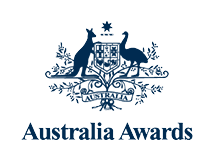My Australia Awards Story - Teachers Special: Dianne Indy Tolentino
To celebrate the culmination of National Teachers’ Month (4 Sept – 4 October) and World Teachers’ Day on 5 October, Australia Awards Philippines will feature three of its teacher-scholars who are making a difference in their communities through their Australian education. Know more about our educators, and their hopes and inspirations in the following multi-part interview piece for the “My Australia Awards Story”.
Part 2
Diane Indy Tolentino is a kindergarten teacher at Tagaytay City Central School. In 2013, she went to Australia to take up her Masters in Early Childhood Education from the University of Newcastle.
What inspired you to become a teacher?
I once dreamt of becoming a flight stewardess when I was little but gratefully, I grew up to be a kindergarten teacher in a public school. The full confidence and conviction that I will be an effective early childhood educator comes from my mentor, the school principal who hired me to do practice teaching. My principal inspired me to fully embrace teaching as a profession.
As I journey in the field of education and face the challenges of being a teacher, I also see the difference we make in our students’ lives. This fuels my passion to be a better early childhood teacher.
How did your Australian education and your experiences in Australia shape the way you teach today?
Acquiring a postgraduate study in a foreign country has made me view the way I teach before I left for Australia in a different lens. The University of Newcastle taught me about self-reflexivity and its significance for people who aim to improve and introduce changes to inefficient systems. The lectures and discussion about paradigms guiding the way we think and do things within our learning space helped me identify and align my pedagogy of teaching. In effect, my Australian education taught me to reflect on my way of teaching and look for ways to improve and innovate.
What are your dreams and hopes for Filipino students and the education sector in the Philippines?
Numerous studies identify early childhood education as a foundation for lifelong learning and the pillar of a strong nation. As a Filipino citizen, a mother, and an early childhood educator, I hope that all Filipino children, from ages zero to eight, will be able to participate in quality early childhood education programs in the country.
Filipinos should be more sensitive in the way we interact with you children. We should be aware that children are very much affected by how we deal with them. I hope that we could let go of the perspective that children are incomplete and not yet fully human. Instead, we should accept that they are capable and competent by themselves and that they are agents of their own learning.
| Back to Featured stories |
|---|

